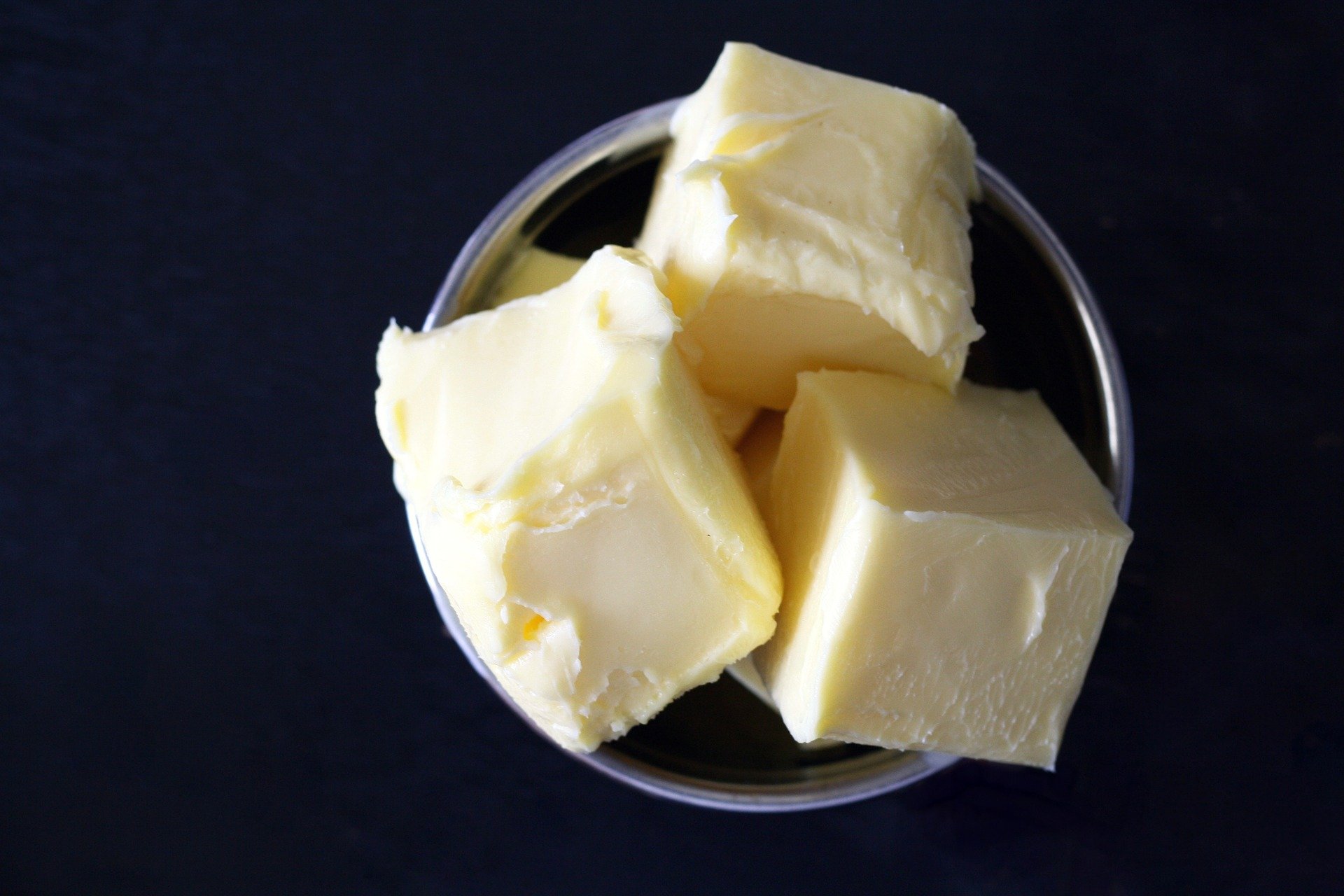NUTRITION
Pros and Cons of Everyday Butter!
Who doesn’t love butter? We cannot imagine our morning bread without butter. Butter is prepared from milk cream and is churned until it reaches a solid-state.
There are several health benefits of eating butter (salted or unsalted). It helps the body to absorb minerals like- calcium, magnesium, selenium, and iodine produces sex hormones- estrogen, progesterone, and testosterone and also provides fertility-supporting vitamins- vitamin A, D, E, and K.
However, butter is an animal product and it contains high amounts of cholesterol and saturated fat, which can cause several cardiovascular diseases.
So, confused with what to do now? Read down the article below which lists the benefits and problems linked with butter. Let’s find out.
Pros of Eating Butter
- Butter contains fat that helps the body to absorb many of the healthy nutrients found in vegetables. It especially helps the body absorb carotenoids and the disease-fighting antioxidants present in vegetables and fruits.
- Consumption of butter fulfills the basic fat requirement of the body, which is 30 percent of total calorie intake.
- Lecithin present in butter helps to enhance cholesterol metabolism.
- Consumption of butter eases the absorption of essential vitamins- vitamin A, D, E, and K.
- It contains arachidonic acid, which is vital for brain functioning.
- The presence of lauric acid in butter helps treat fungal infections and candida.
- The presence of vitamin D in butter helps in the absorption of calcium, which protects teeth against decay.
Cons of Eating Butter
- Excess of anything is bad, so does this. Butter can increase the levels of “bad” cholesterol in the body which increases the risk of cardiovascular disease.
- 1 tablespoon of butter has 30 milligrams of cholesterol and 7 grams of saturated fat. Butter’s saturated fat, is more troubling, which raises levels of bad cholesterol in the body. The daily intake of saturated fat, however, should be no more than 15 grams.
While eating, obviously we never count the calories we take in, especially when we eat our favorite food. Don’t feel sad by reading the cons of butter. We do have a solution for you and don’t need to leave your yummy butter. Follow these points and eat yummy, stay healthy!
Tips for Butter Consumption to get Maximum Health Benefits
- The health experts advise limiting the intake of butter-whipped recipes as far as possible. Excess of anything is bad. So if you eat a limited amount it will only add to your health, giving you energy. So, do keep count on your daily consumption. I’m sure you won’t like eating those heart medicines instead of butter.
- Butter which has half the amount of saturated fat and cholesterol must be utilized for the preparation of food instead of regular butter.
- Butter which blended with canola oil or olive oil is much healthier than regular butter.
- Rather than using whipped butter or butter-oil spreads, use butter for baking.
- Use only high-quality organic raw butter.



















